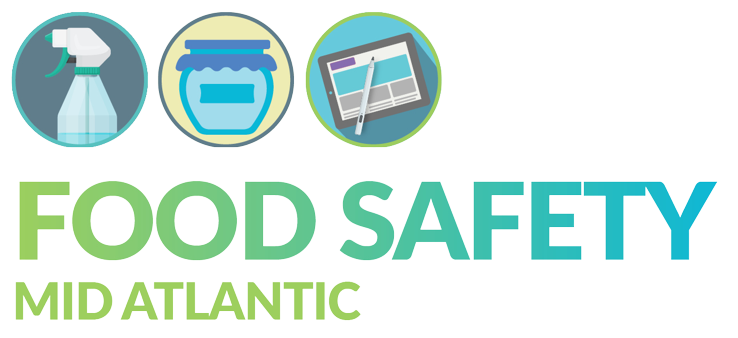Food safety is a critical element of business success, but isn’t something you have to do alone. A food safety consultant can provide the support and expertise you need to thrive.
As a small business owner, you have a lot to juggle. From recipe development to negotiating with vendors and buyers to posting on social media, every day is jam packed. Add on writing HACCP plans, passing inspections, and keeping track of recalls and you quickly can get underwater.
A food safety consultant can’t make your product or design perfect Canva graphics for your newsletter, but we can make your food safety load lighter. In this blog post, we will cover how to know if you need a food safety consultant and how to find the right consultant for your business.
9 Reasons You Might Need a Food Safety Consultant
There are two types of reasons that you might need a food safety consultant: proactive and reactive.
If you’re being proactive, you are investing in a food safety program before problems arise. You’re constantly improving your food safety practices and making sure that your whole operation is safe.
Proactive reasons to work with a food safety consultant include:
- Your business is growing and you’re ready to sell wholesale or work with a co-packer. You need support writing down the unwritten rules and practices that go into making your product so that the quality and safety remain consistent as you grow.
- You have been operating under cottage food laws and producing out of your home kitchen, but it’s no longer big enough so you’re moving to a commercial kitchen. You need help figuring out what that next step will look like and how to keep your food safe.
- You are moving to a larger facility. You need assistance modifying your food safety plans to fit your new space.
- You purchased a new piece of equipment. You want help figuring out how it fits in your food safety plan and developing SOPs for its use.
If you’re being reactive, you are responding to a food safety issue during or after the fact. You’ve realized that you need a better approach and are seeking support to make it happen.
Reactive reasons to work with a food safety consultant include:
- A food safety issue is keeping you up at night. You need support creating a plan to deal with it.
- You’ve been asked by a customer for a HACCP plan, an audit, or some other documentation, but you don’t understand what they’re looking for. You need an industry expert to explain what you need and help you get it.
- You’ve failed an inspection. You need support fixing the problems so that you can pass.
- You have a problem with the quality of a product you’re making. You know that your recipes are good, but the products keep getting moldy and you need assistance figuring out why, and how to extend the shelf life.
- You read about an outbreak relating to your product and want to make sure your food is safe. For example, you make a product with onions and read about an outbreak of salmonella in onions. You need help determining next steps to prevent harm to your customers and damage to your business.
Ideally, you will be proactive and work with a consultant before you face issues, but that’s not always the case. In any situation, once you decide to work with a food safety consultant you need to find the right person for you.
How to Choose the Right Person for your Food Business
With a subject as critical as food safety, it’s ok to be picky about who you work with. Find the person with the right qualifications, deliverables, and temperament for you and your business.
Creating a short list of possible consultants is relatively simple. You can ask your network in the food world for recommendations or do a simple google search. The more challenging part is narrowing your list down.
We recommend meeting with any potential food safety consultant. Ask the consultant and yourself the following questions:
- What is the price for consulting services? Is that a price you are able to pay? Does it seem fair for what you will receive? Be wary of prices that seem too good to be true or too high.
- How much work will the consultant do vs how much work will you do? Ask yourself how much work you’re willing to do, then make sure the consultant’s services align with that.
- Does the consultant explain things in a way that you can easily understand? Look for a consultant that offers approachable expertise. There’s no point in having a food safety program that you don’t understand because you won’t be able to follow it.
- During the consultation, does the consultant listen to you or just give you a sales pitch? You want a food safety consultant who you connect with, who really understands you and your needs, and who puts food safety first, not their profits.
- Does the consultant offer a set template or food safety plan, or do they customize and write the plans specifically for you? Your food safety plan needs to actually reflect what you do for it to be effective. Seek out a consultant who customizes rather than using set templates.
- Does the consultant have the necessary expertise for your specific questions, needs, and type of production? Not all food safety consultants have the same areas of focus. For example, we don’t know much about juice and seafood, which would likely make us not as good a fit for a juice company as we are for a jam business.
Asking these questions will allow you to get a comprehensive picture of the potential food safety consultants. You will be able to discern who will be the right fit for you and your business before you’ve invested hundreds or thousands of dollars into their services.
Whether you’re being proactive or reactive, the decision to work with a food safety consultant is always a good one. Finding the right person gets you the support you need to keep your food safe and your business successful. Check back next month for our post about how to work with your consultant and get the most out of your relationship.

